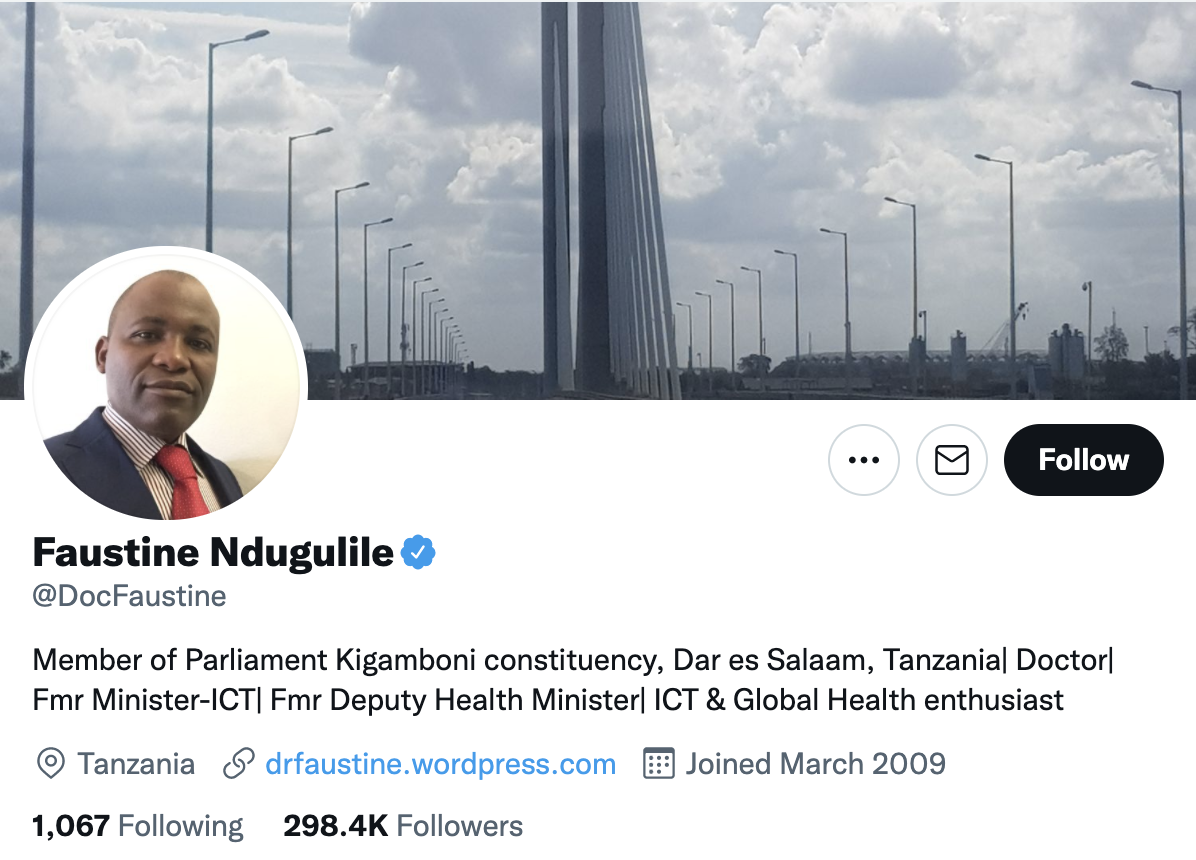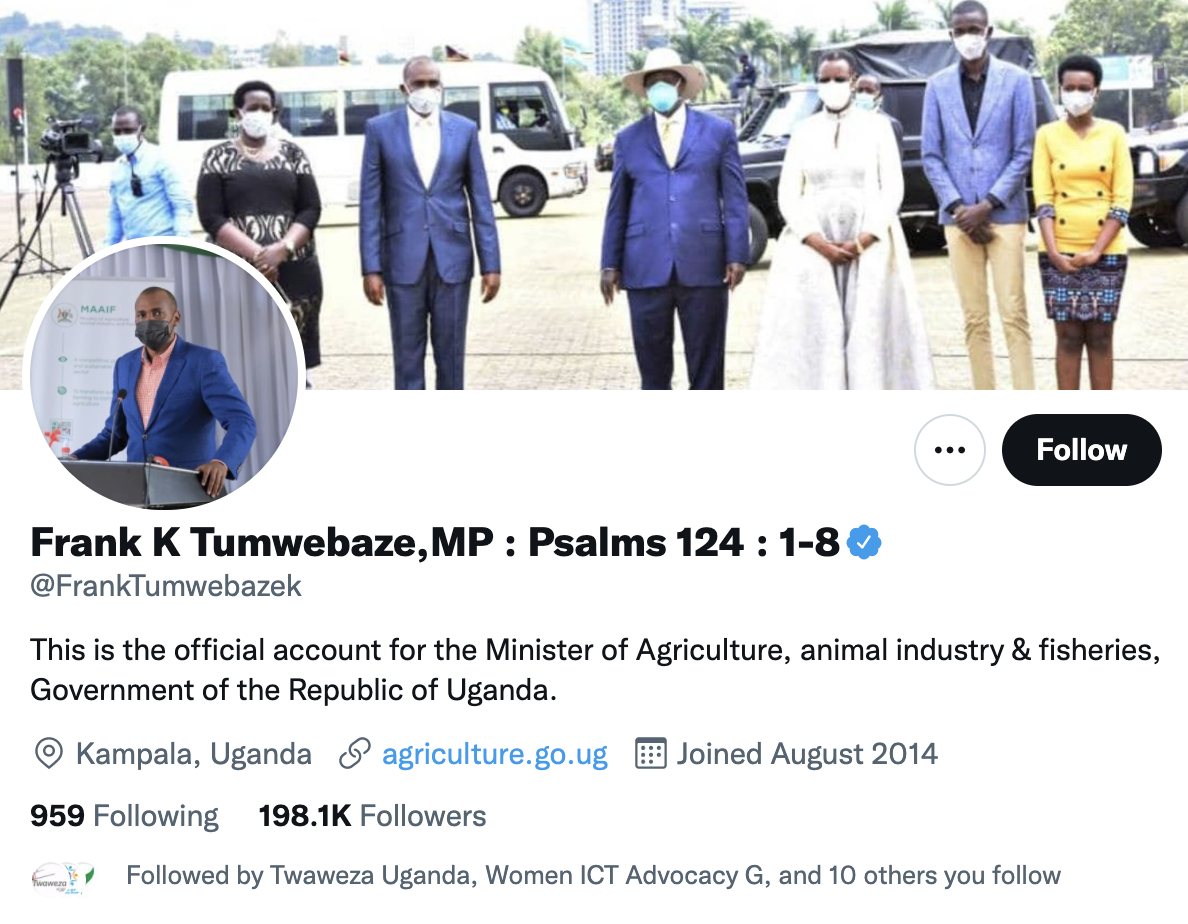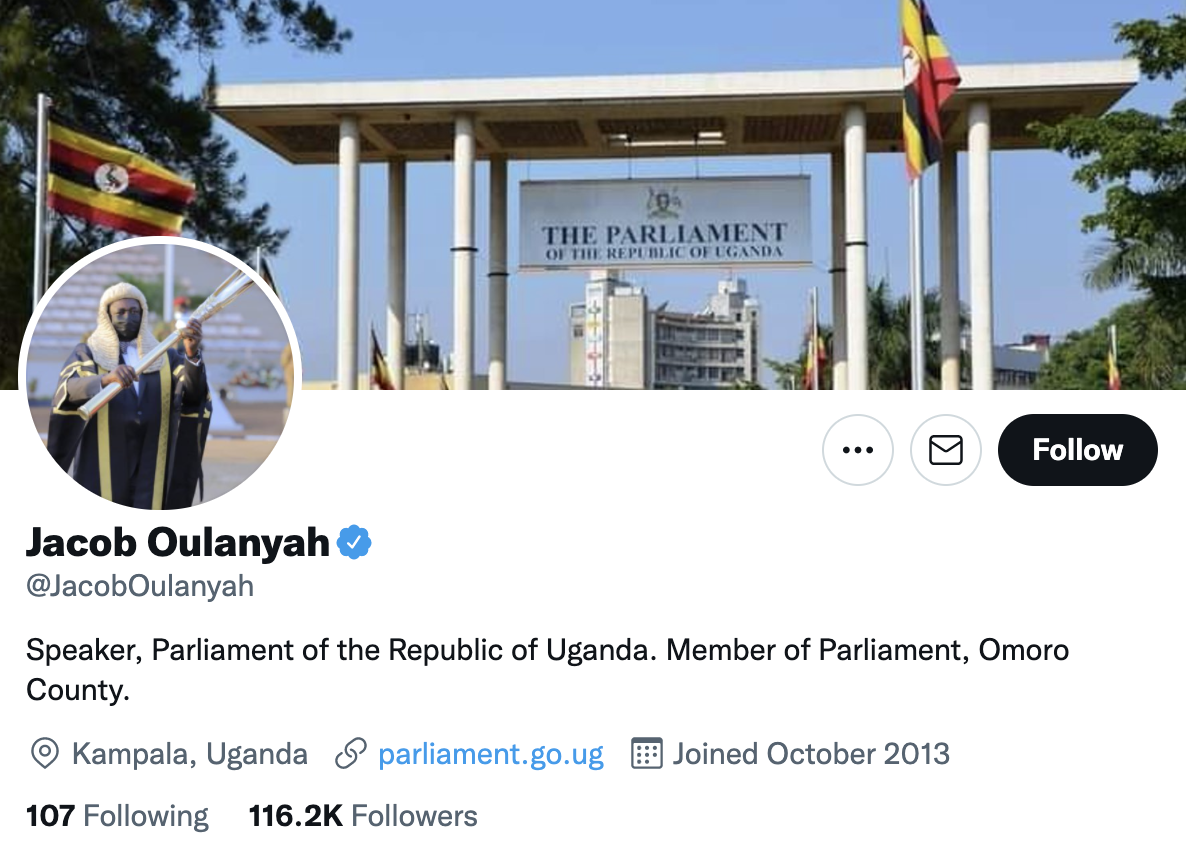Effective leaders
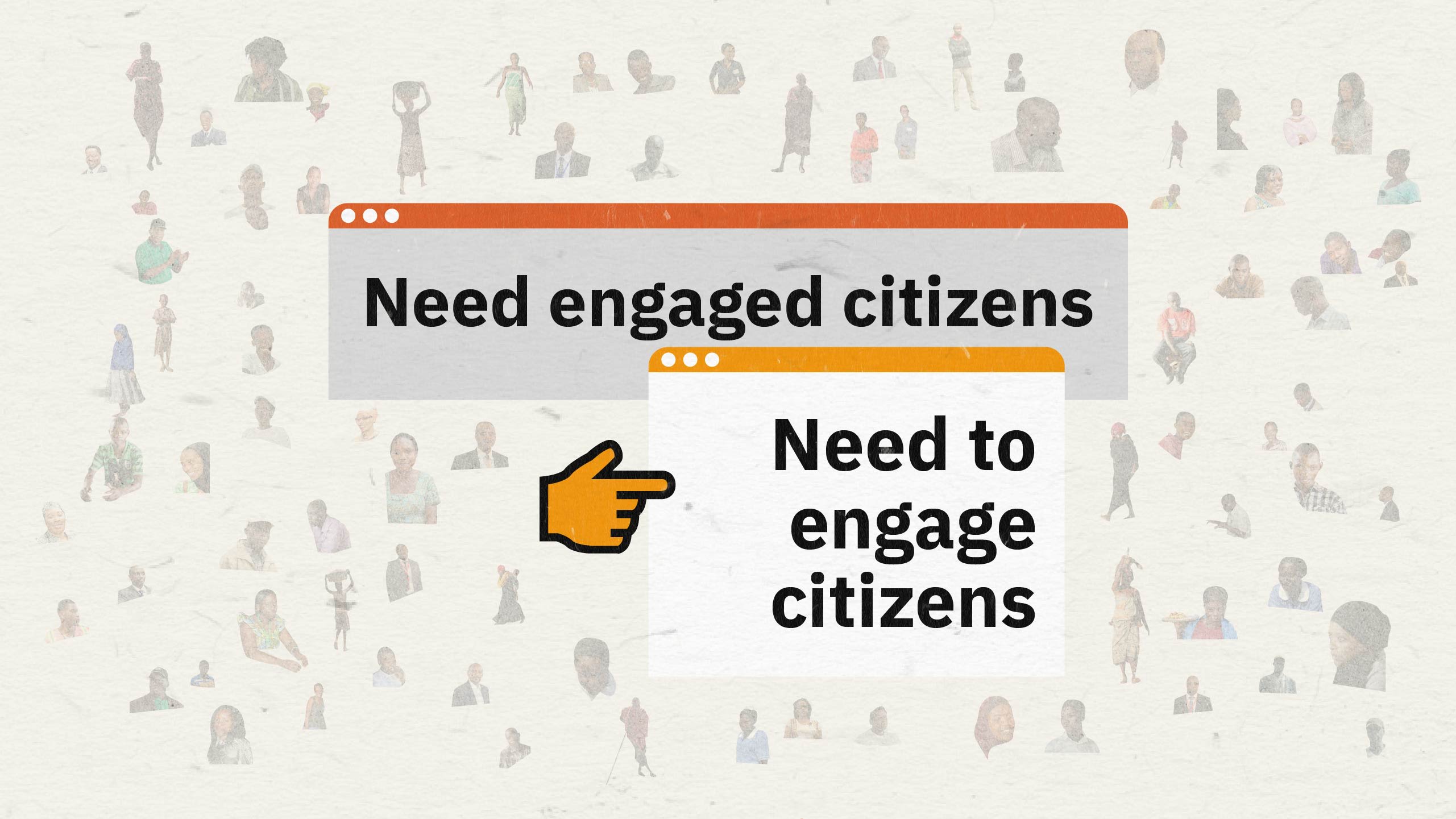
You’ve voted.
The candidate of your choice is in position.
They work for you, but do you ever check in on what they are up to?
Electing leaders to represent you in parliament is important, but engaging them throughout their term to ensure your most pressing needs are met is the best way to experience the power of your vote.
So how do you make your ideas and opinions count?
We have an idea! It’s simply to encourage you to speak up.
At Twaweza, we want to encourage citizen participation by showing how engaged citizens can make political leadership more effective.
Making your opinions and ideas count is a recipe for open governance and inclusion. But the data we have gathered in Tanzania and Uganda shows that we are currently missing an opportunity.
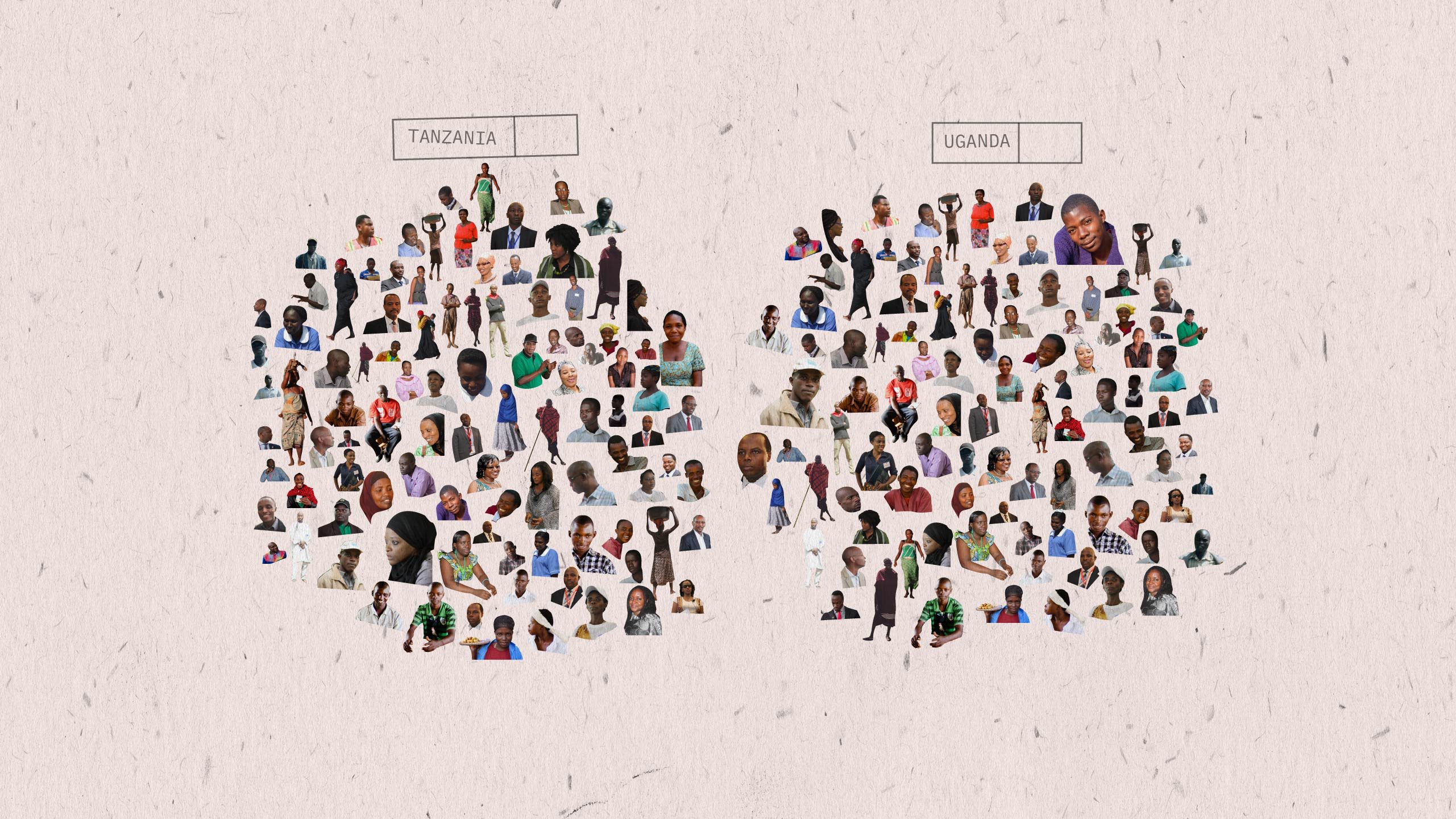
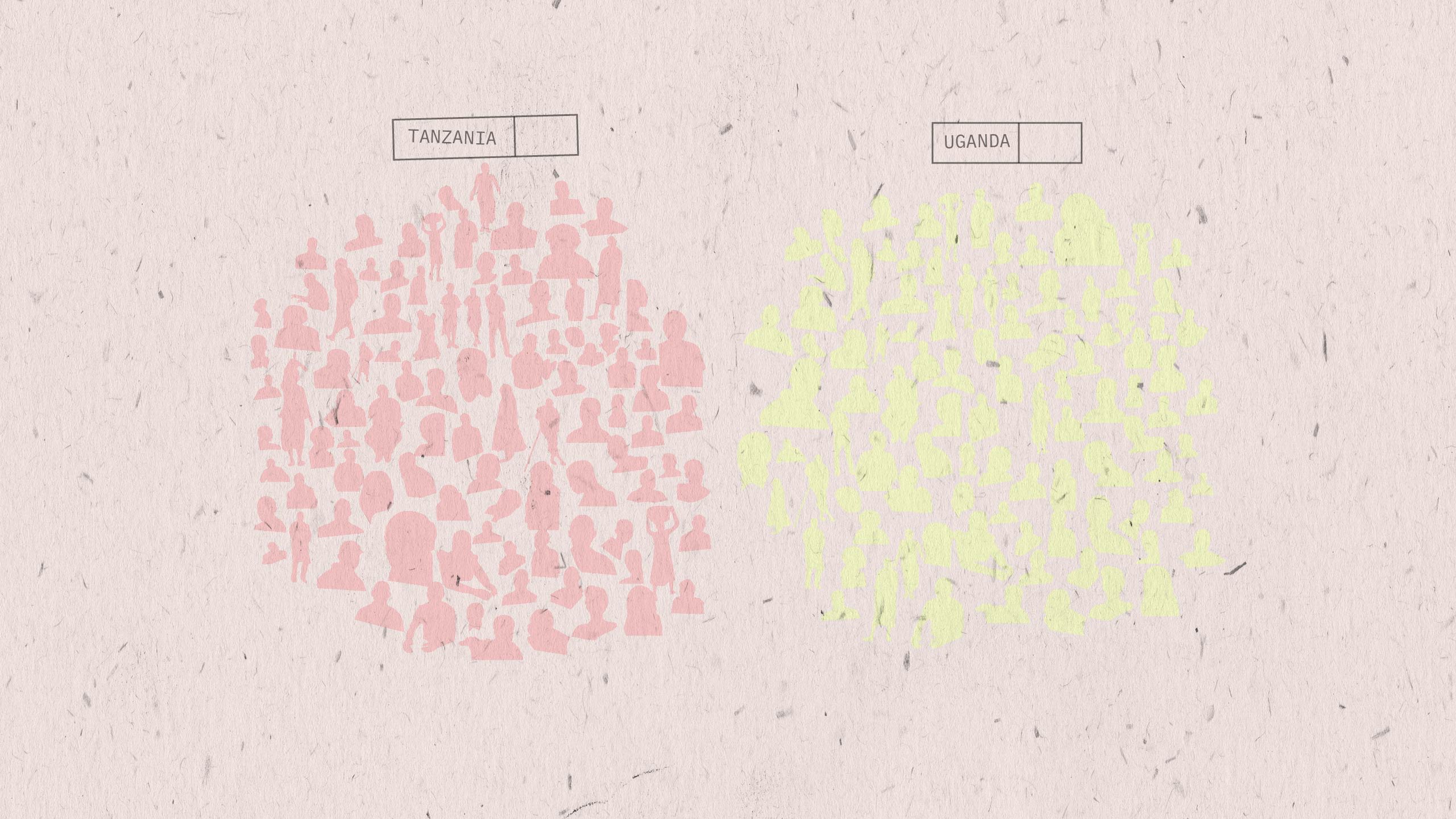
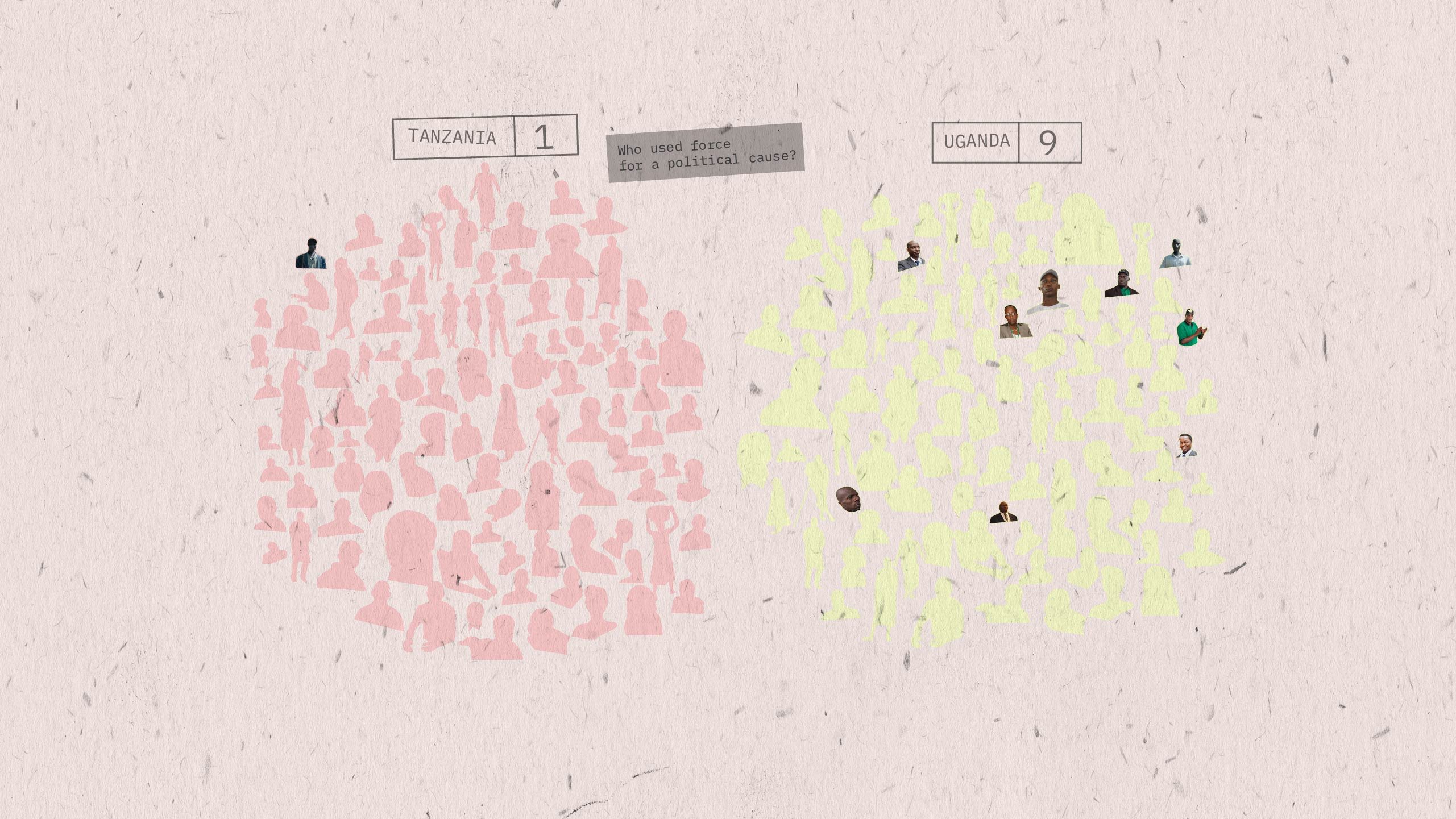
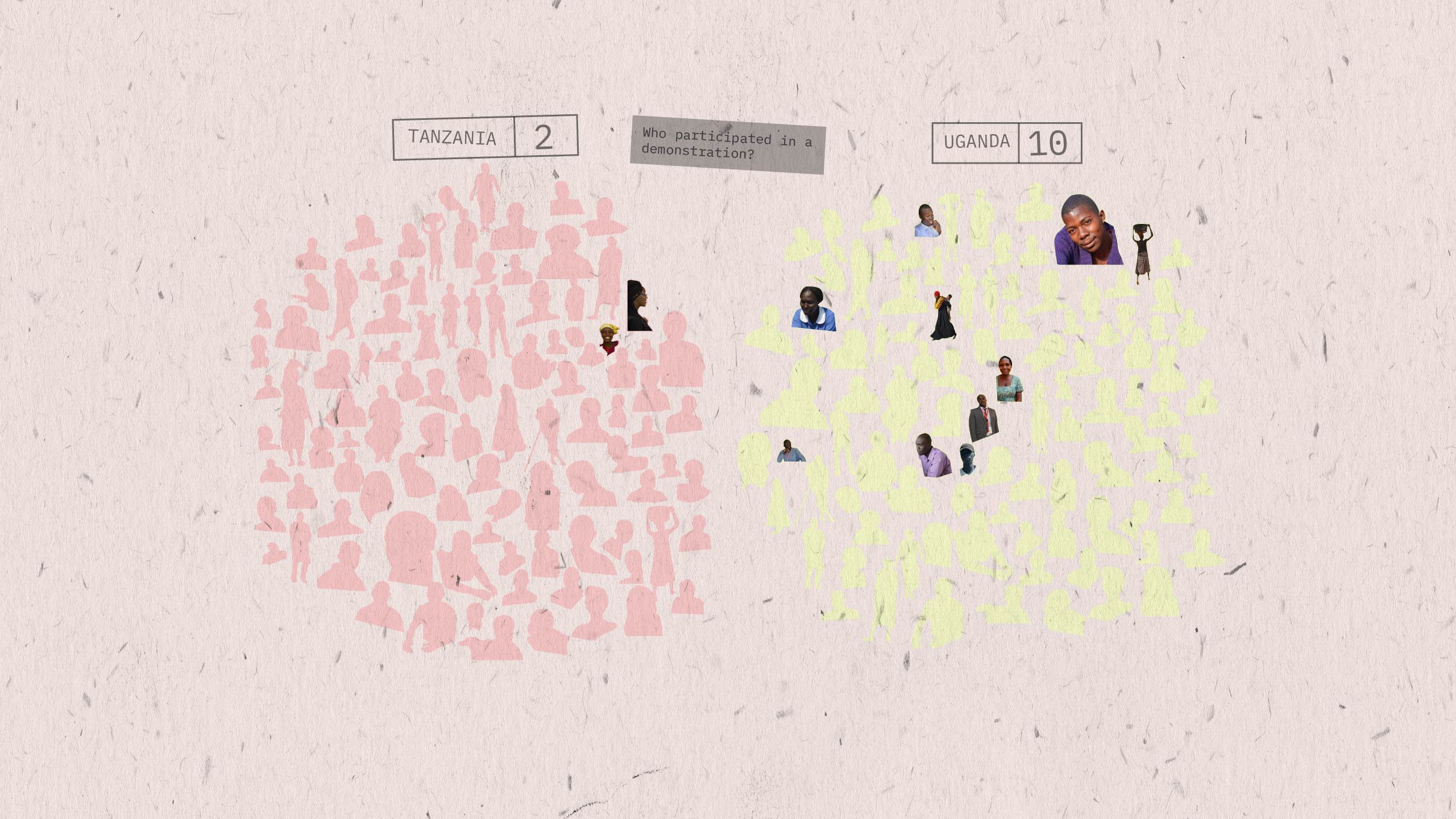
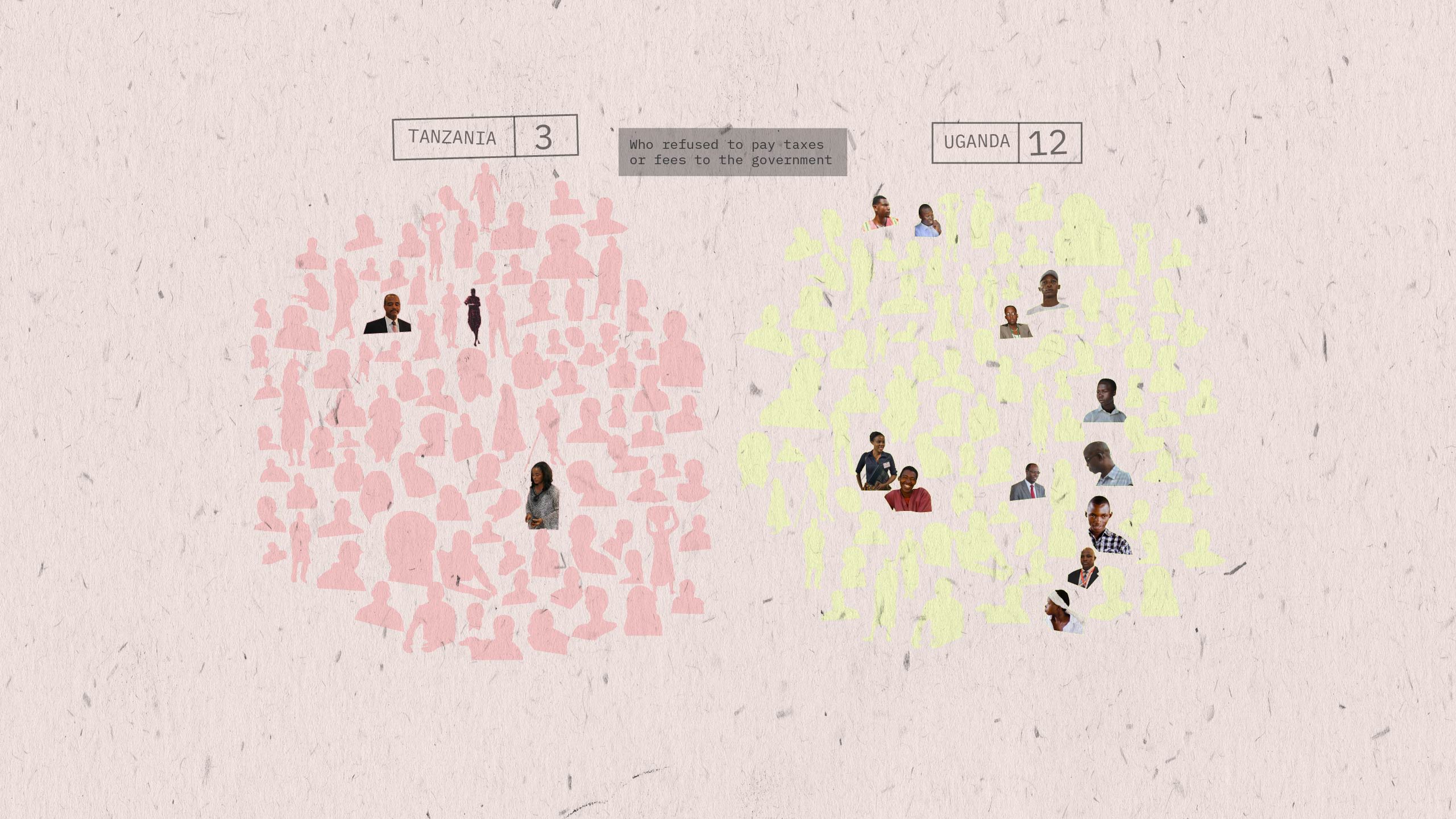
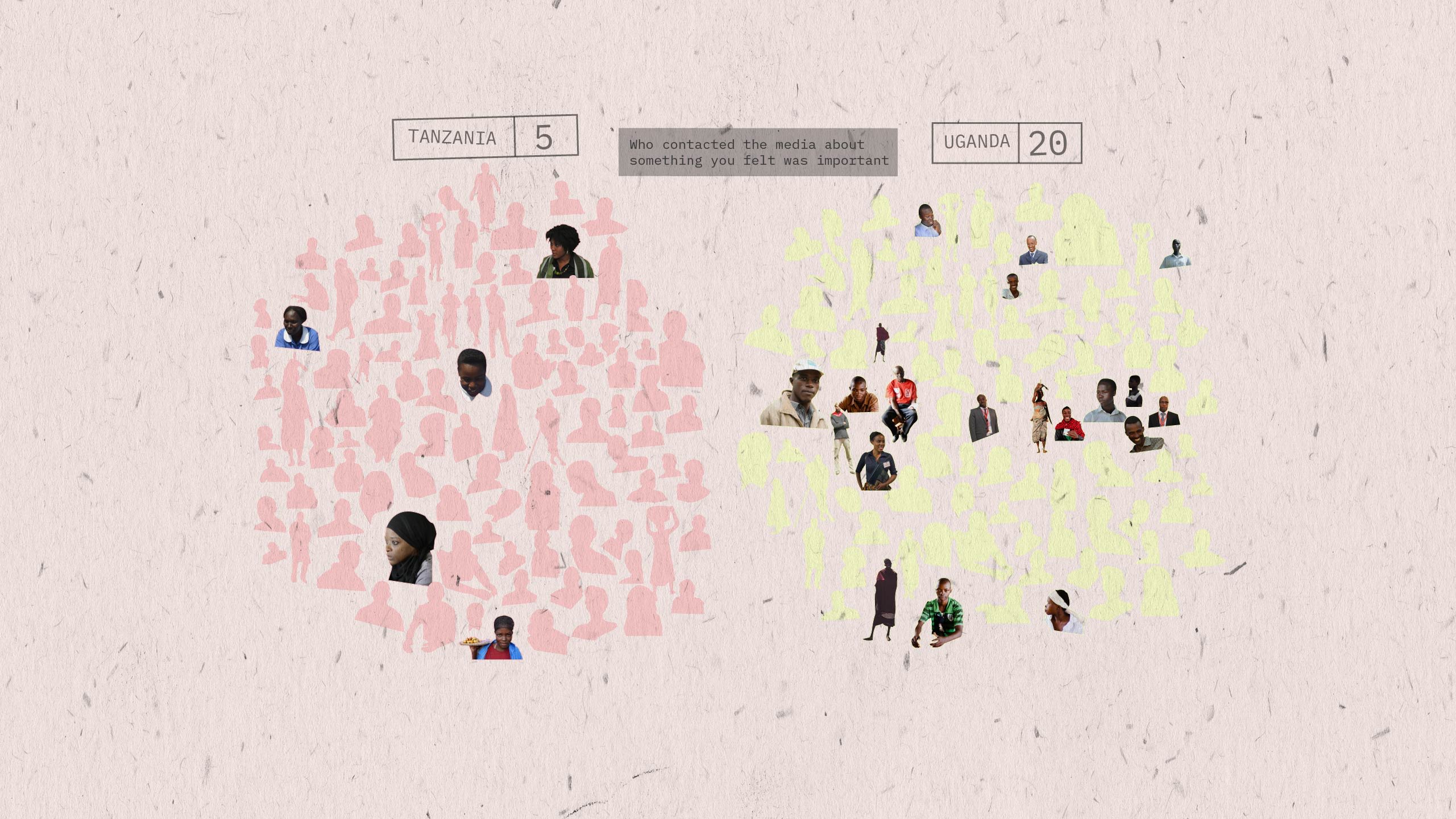
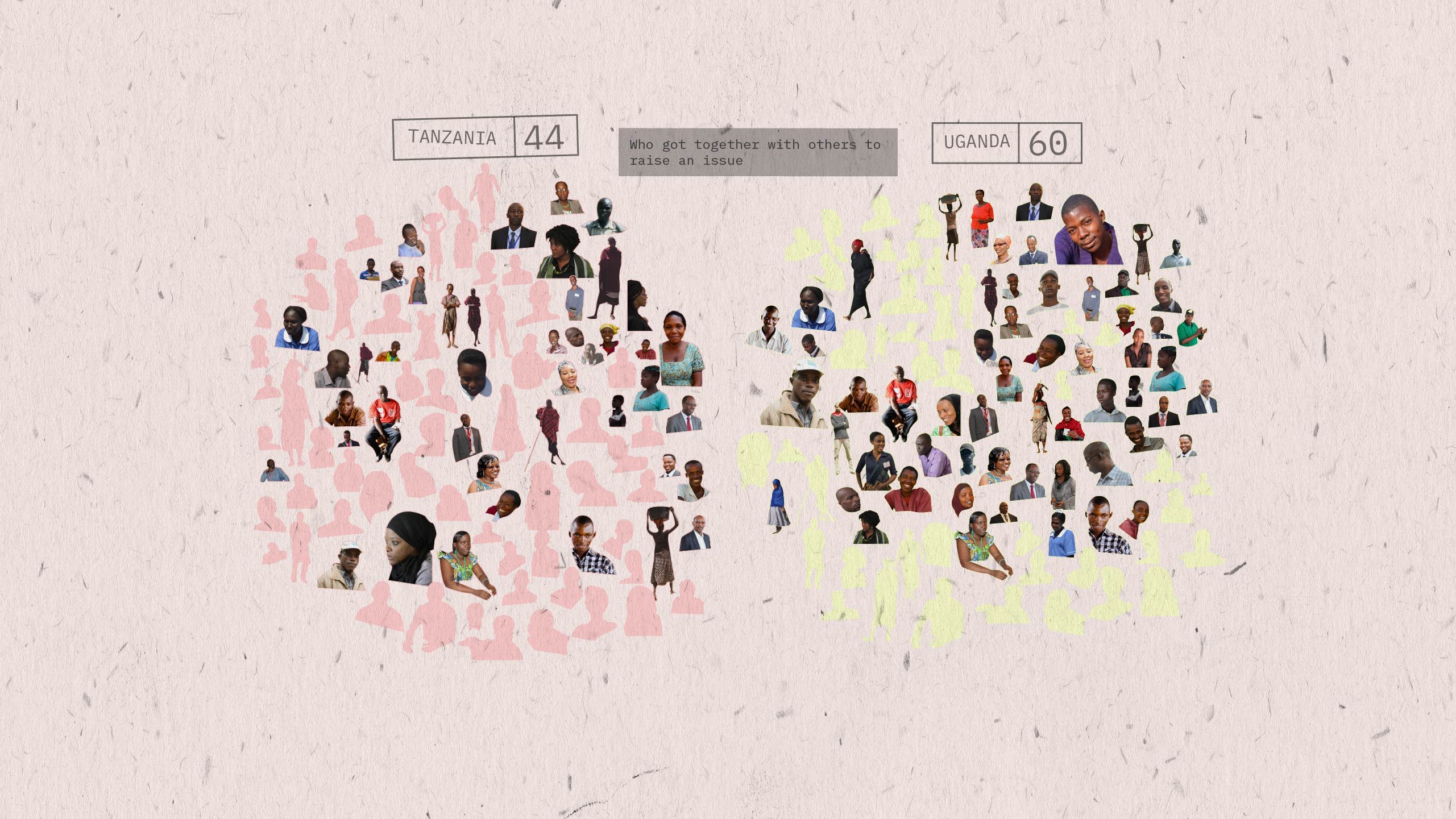
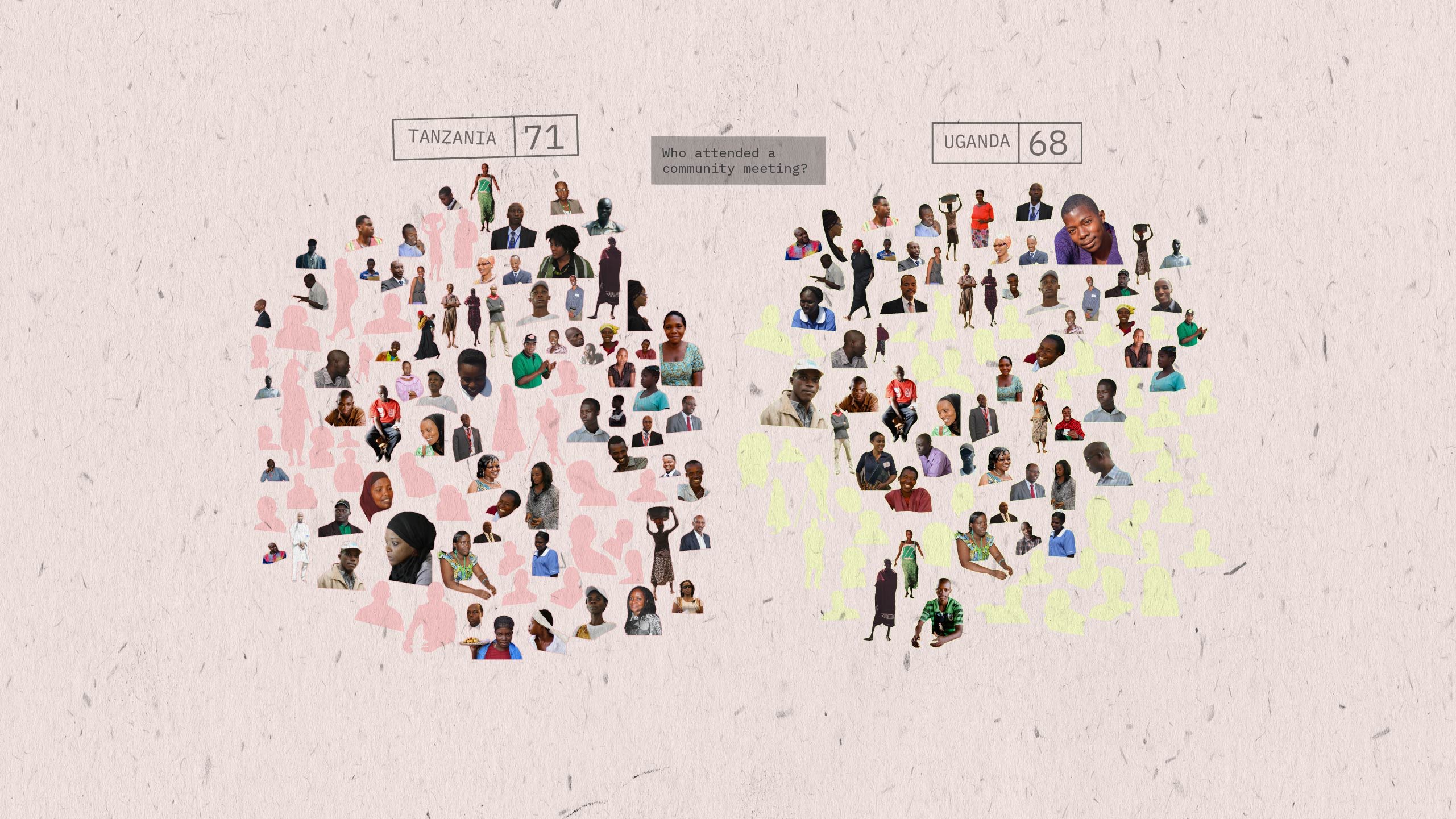

So which type of citizen are you?
Let’s imagine the populations of both Tanzania and Uganda as 100 people.
Are you one of the people who used force for a political cause?
Have you participated in a demonstration?
Are you someone who refuses to pay taxes or fees to the government?
Have you ever contacted the media about something you felt was important?
Or got together with other people to raise an issue?
Or are you one of the nearly 7 in 10 people who has attended a community meeting?
Our data shows that citizen participation in Tanzania and Uganda almost always local.
Communication between citizens and their representatives is at an all time low.
Read on to find out why and what we can do about it.
Disengaged, disinterested, or just drained?
One of the most popular platforms for public participation and engagement in Tanzania and Uganda has always been in-person public forums.
We took to the streets to find out why some citizens aren’t showing up at the county halls anymore.
“Failure to implement decisions of the members of the public because of corruption discourages citizens from attending these meetings. Over time their confidence in their opinions and contributions has been eroded.”
“Citizens feel that they are called to these meetings just to rubber stamp what has already been decided in the budget, and yet they were not consulted in the planning.”
“40 years of single rule has killed patriotism even in other community engagements ... So people believe that for every government engagement the responsible party has taken a hefty commission.”
“Most of these meetings don’t give feedback on items that the previous meetings agreed upon. People find a new agenda, and when they ask [about what was previously agreed], maybe don’t get satisfaction with answers from leaders.”
Have you ever attended a meeting at your local government office?
If you haven’t, you’re not alone. Many of our survey respondents are disengaged too.
And the reasons they don’t attend public discussion forums are quite varied.
Keep scrolling to explore the data.
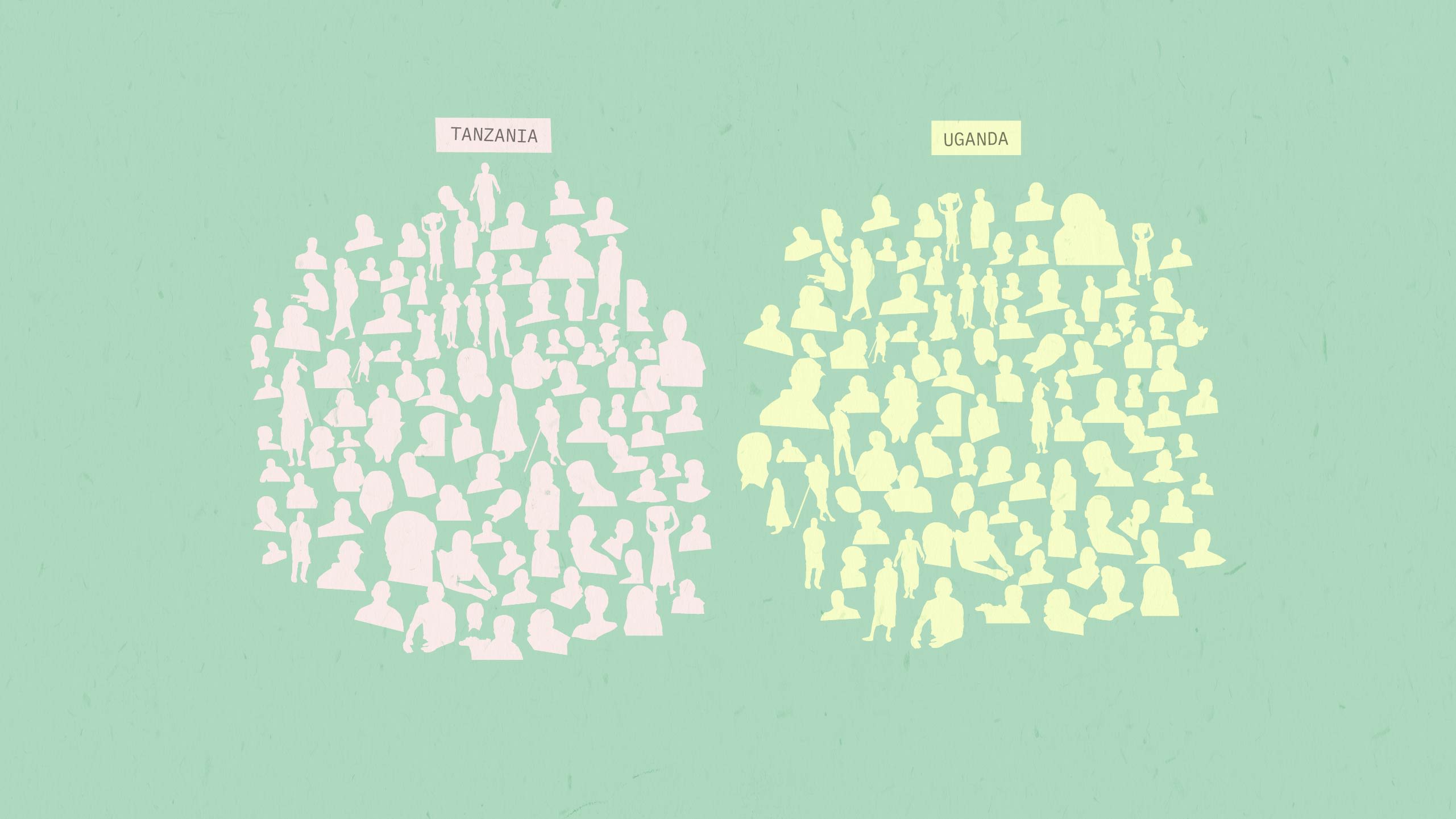
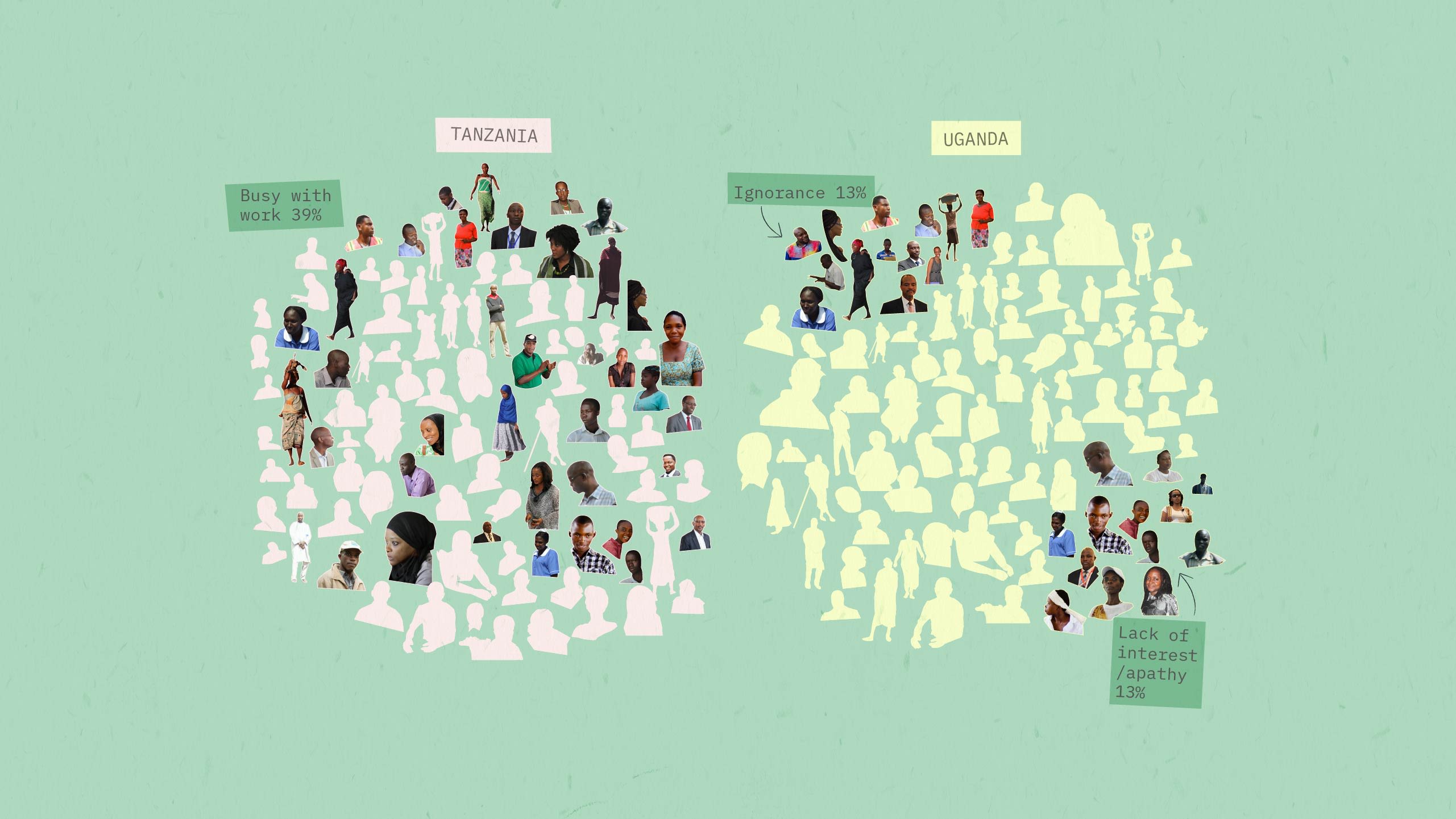
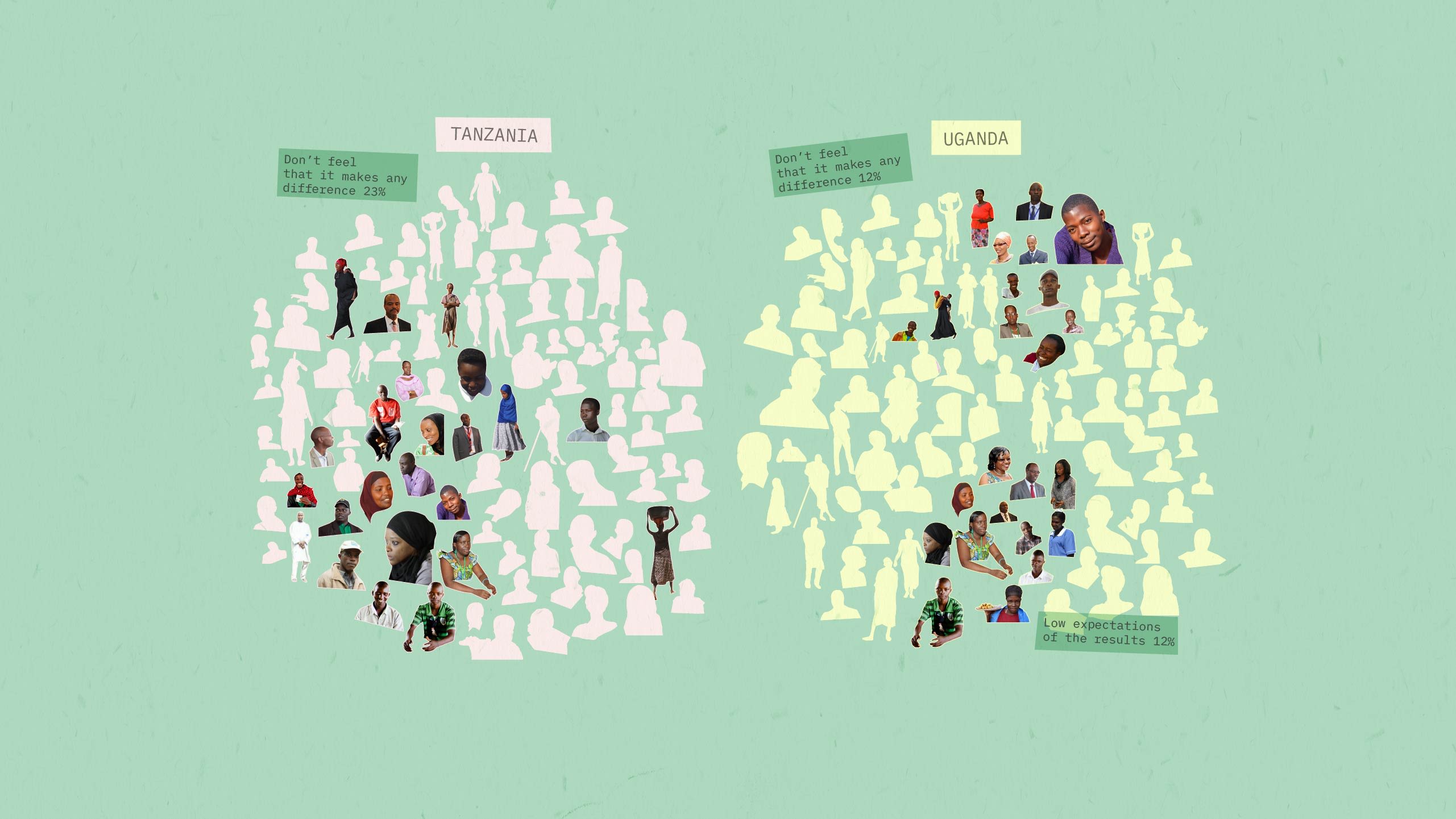
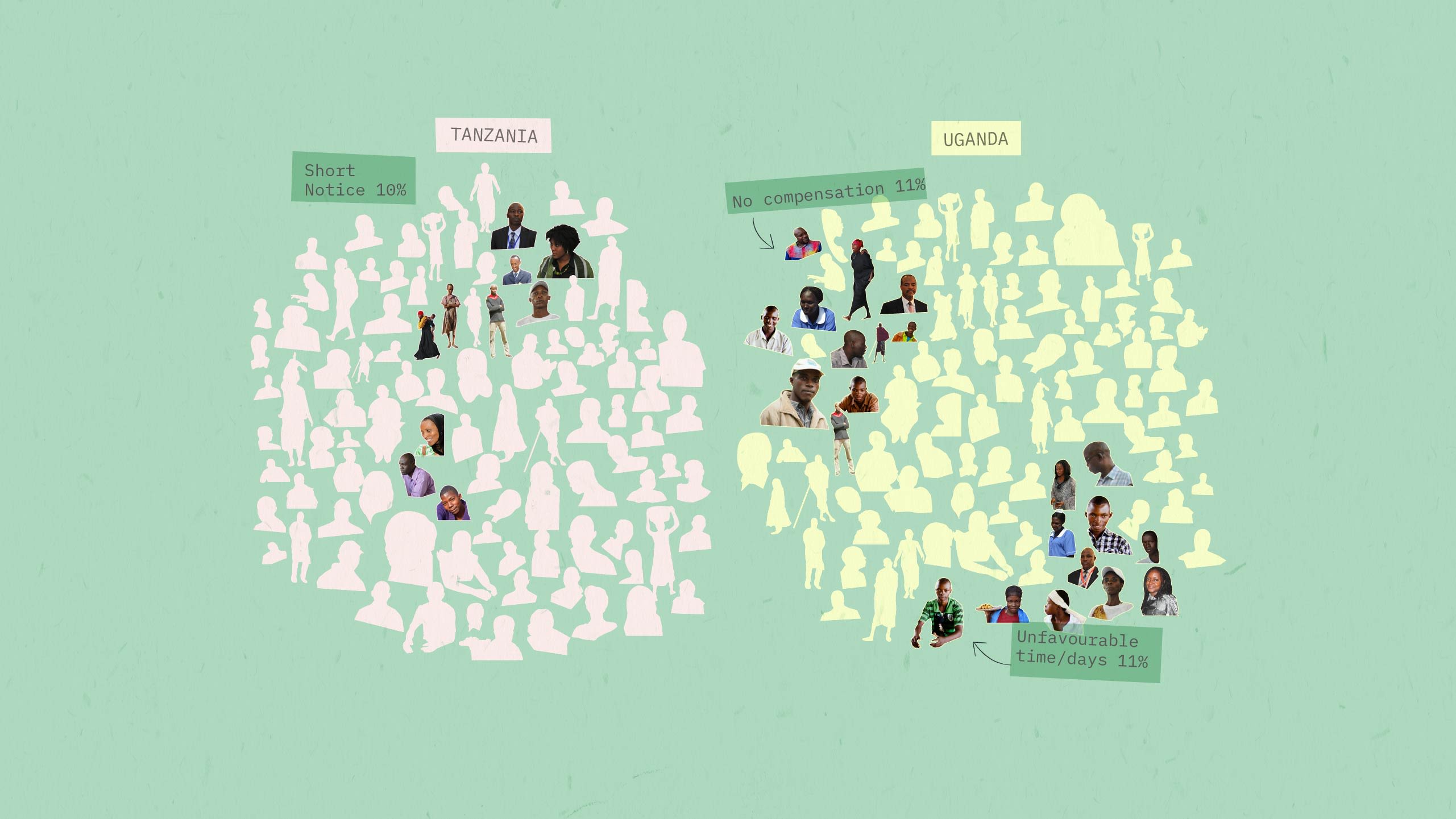
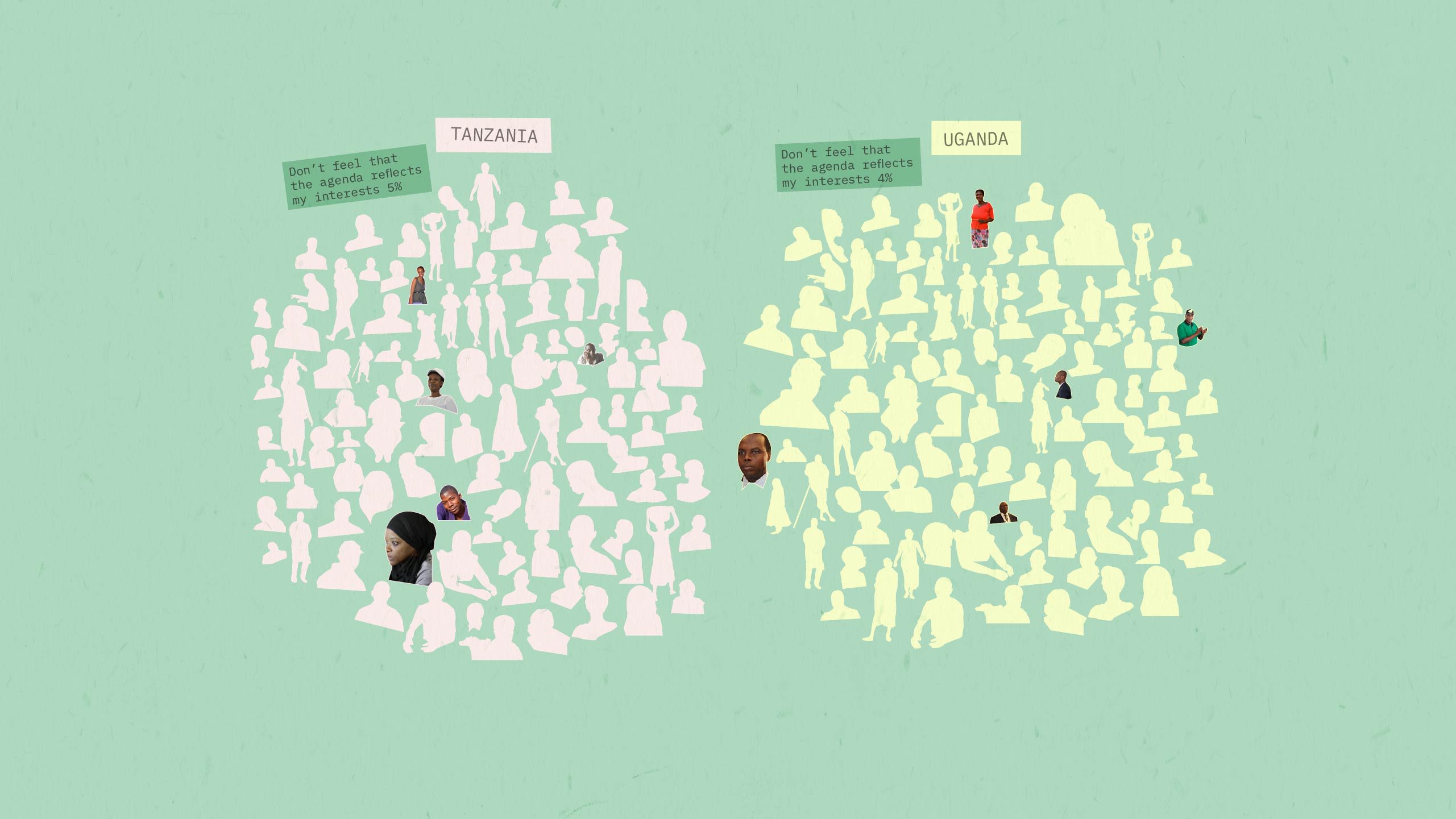

There were several reasons respondents gave for not attending public discussion forums in Tanzania and Uganda.
In Tanzania the top reason for not attending public forums was work while in Uganda the top reasons were ignorance, lack of interest and apathy.
In both countries, many respondents felt that the discussions don't make any difference or they had very low expectations of the results.
Many of the other reasons for not attending were to do with the short notice, unfavourable time of day and lack of compensation.
Similar numbers of both Ugandan and Tanzanian respondents did not attend because they felt the agenda did not reflect their interests.
As you can see, the top reasons for not attending in-person public discussion forums were largely practical, relating to poor communication, the cost of travel and the time to travel. Other important reasons included apathy and lack of trust in the process.
We’ve got good news though. Public discussion forums are just one of the many ways citizens can exercise their agency.
At Twaweza, we want to highlight how communities can take charge of their destinies by actively joining their leaders in decision making.






What it takes to participate
What does citizen participation mean? If you’re confused, you’re not alone. We asked Tanzanians and Ugandans what citizen participation in government means to them.
In both Tanzania and Uganda, respondents said that participation in government was defined as taking part in meetings, projects and programmes organised by the government.
Development activities was also a way to participate in government.
Citizens could also work with government, take part in elections, and pay taxes.
Cooperation was another aspect of citizen participation in government.
At Twaweza we believe citizen agency means empowering communities to be the drivers of their own destinies.
Effective and inclusive citizen voice and participation enables us to:
- identify structural or systemic causes of problems
- highlight under-represented citizen issues
- advocate for policy, budget, and legal changes
- mobilize wider citizen action
- promote an open civic space
But sometimes we can be afraid or unaware, not trust that any one will support us, not think it is our job or that we can make a difference.
All of these are real problems that prevent citizens from exercising their agency or raising their voices.





Do you know the law protects you?
Holding the government to account, especially to the laws they enact, is an important part of civic participation, but our data shows that most citizens are unaware of the legislation that protects some of their most fundamental rights.
Tanzania’s Access to Information Act (2016) "provide[s] for access to information; to define the scope of information which the public has the right to access; to promote transparency and accountability of information holders."
Uganda’s Access to Information Act (2005) “empowers citizens to scrutinize government decisions and hold public officials accountable, while also protecting whistle-blowers.”
95% of Tanzanians and 89% of Ugandans are unaware of the Access to Information Acts in their countries.
Most respondents have never interacted with a government office,
or a government website.
Log on and stand up
Despite this low online engagement, could the internet present an opportunity here for overcoming some of the barriers preventing active citizen engagement?
We believe so.
Particularly when it comes to obstacles such as cost and time, the burden of travelling to and attending meetings, poor communication, and not reflecting public interests.
In both Tanzania and Uganda the number of people with access to the internet, in particular mobile broadband connections (meaning they’re ready to engage on the go) continues to grow.
In fact, there are already some great examples of digital citizen participation online.
In Tanzania, the Legal and Human Rights Centre collects real time information from young people observing elections through a specially built online platform that they can report through using their phones.
As a result, media, political parties and human rights actors can get immediate updates on any issues that need to be addressed and can report any questionable actions.
In Uganda, the government published its procurement data on a specialised online portal. The Africa Freedom of Information Centre and other civil society organisations were able to analyse these data and support the government to identify close to 400 billion Uganda Shillings worth of potential mismanagement, leakage or other violations of procurement regulations.





But digital citizen participation is not without risk.
Crackdowns on free expression online are common in Tanzania and Uganda, especially during elections and periods of civil unrest.
The Ugandan government imposed blanket restrictions on digital media and the internet during the highly contested general elections in January 2021 and turned off the internet entirely for five days.
Vague provisions in Tanzania’s 2015 Cybercrimes Act and 2018 Electronic and Postal Communications Regulations empower the authorities to restrict free speech at their discretion. During the 2020 elections and for at least six months after, access to Twitter was restricted.
Or without cost.
In April 2021, the government of Uganda replaced the controversial social media tax (officially known as the over-the-top services tax) with a 12% tax on internet data, making getting online even more cost prohibitive.
Growth in access to mobile internet services has plateaued in recent years in Tanzania, perhaps because of creeping affordability barriers. Taxes on the use of mobile services in Tanzania represent a higher share of prices than any other country in the sub-Saharan region, at 35% (Source: The Citizen).
So what do we recommend?
Let’s go digital
Data shows there’s a growing online audience out there and ready to be engaged.
Digital civic engagement doesn’t require everyone to have a mobile-broadband subscription.
Researchers from LSE used our data to test whether targeted SMS messaging could have an impact on voter behaviour in Uganda.
Although 8 in 10 respondents found the information provided about social services very useful, ultimately whether citizens received information that public services were better or worse in an area did not seem to have much effect on how they voted.
One of the reasons for this may have been that voters did not know who to hold responsible for the public services.
So, it’s important that citizens know what they are entitled to (what government has promised to them), how to get that entitlement, who is responsible before they are likely to change how they do things.
In Uganda, we asked citizens which of the following digital civic participation platforms they’d heard of.
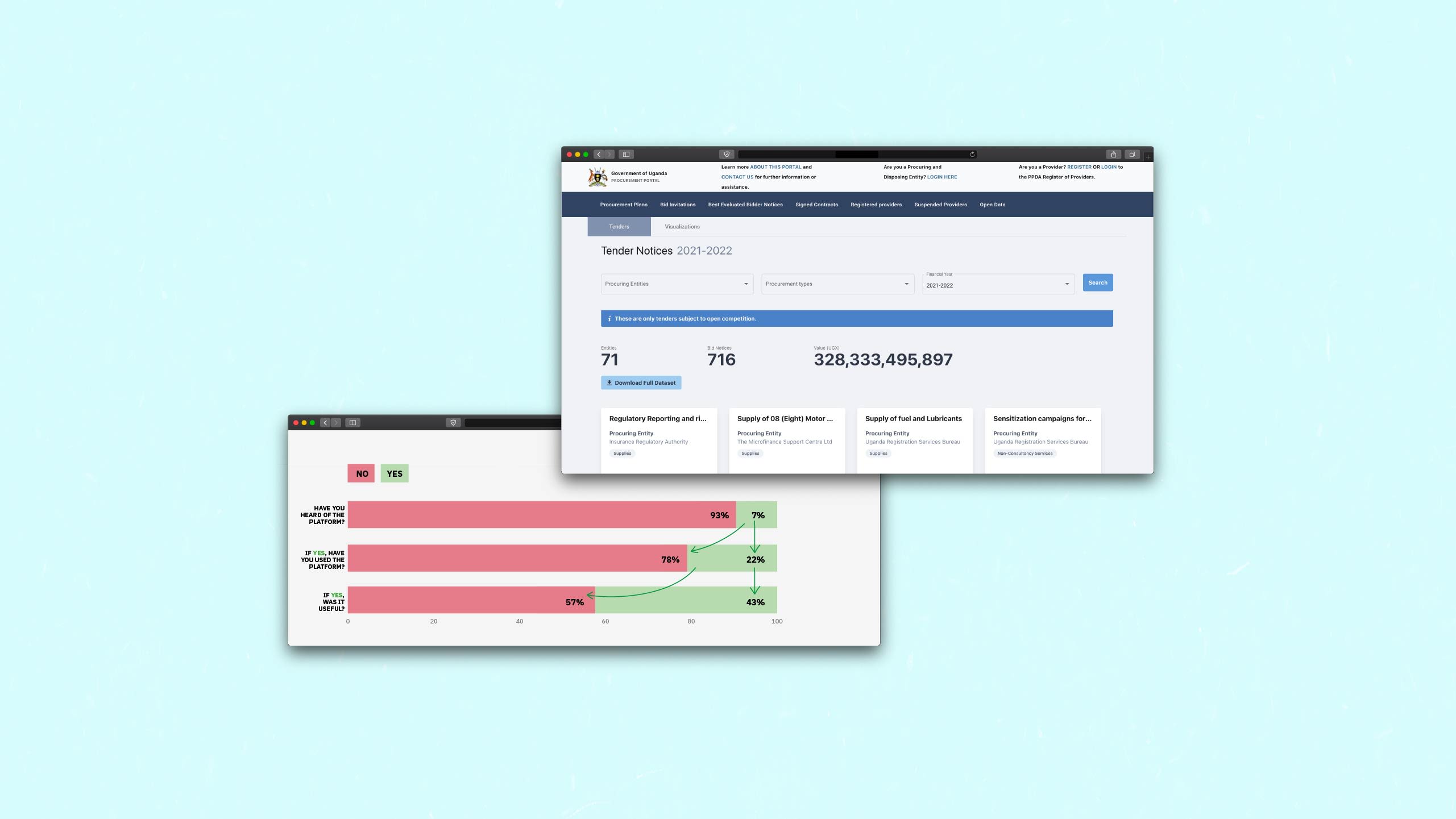
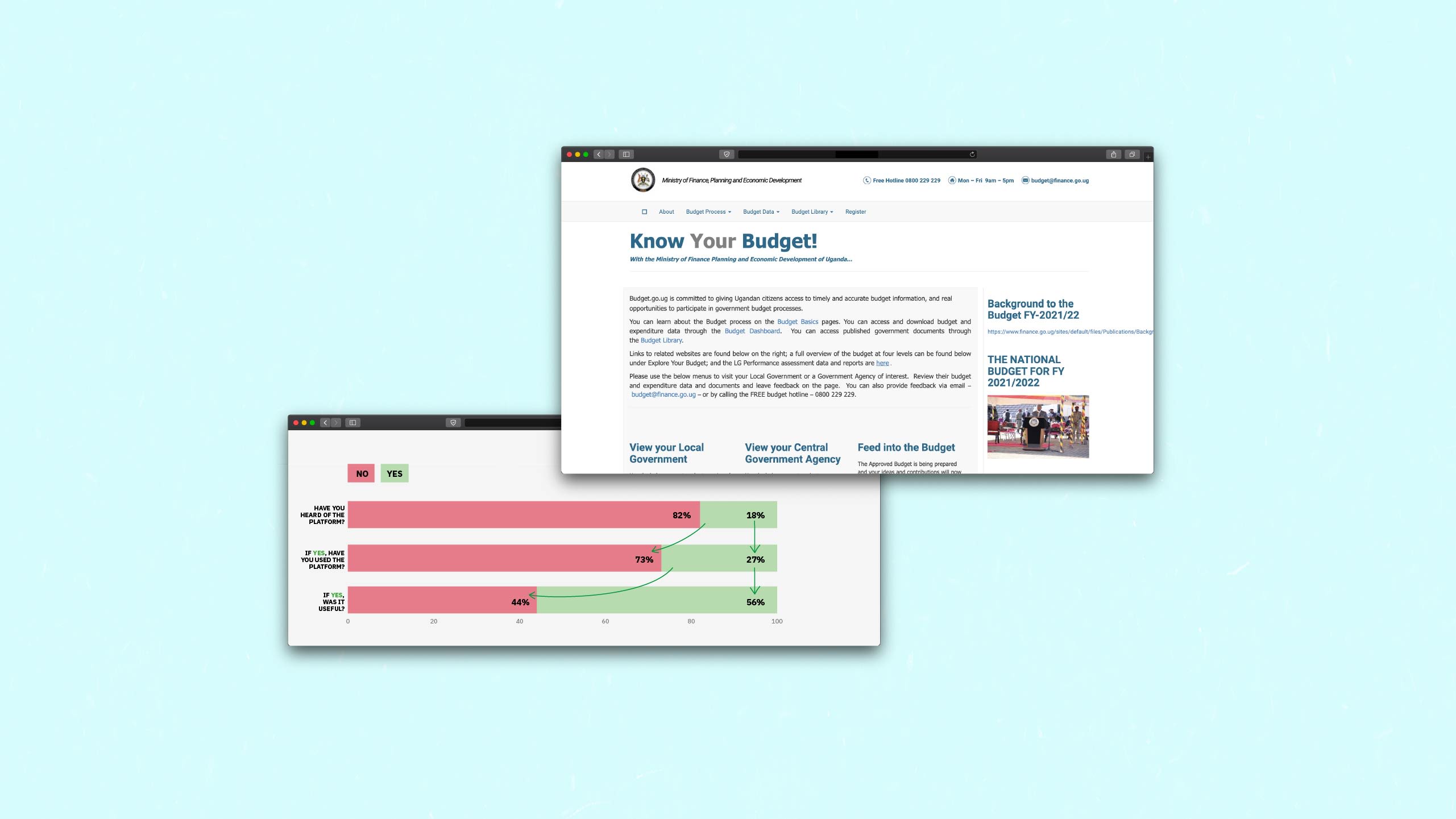
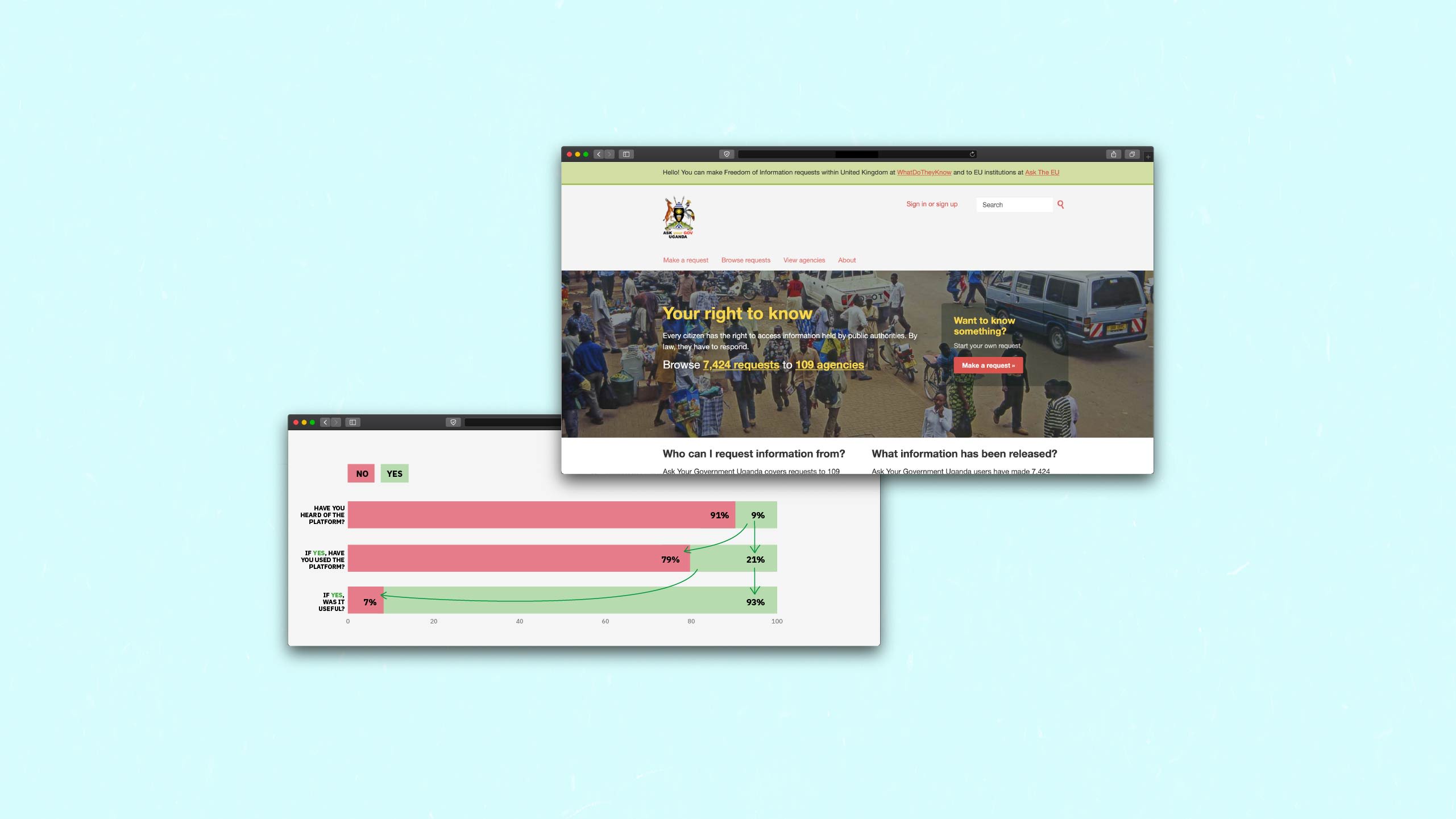
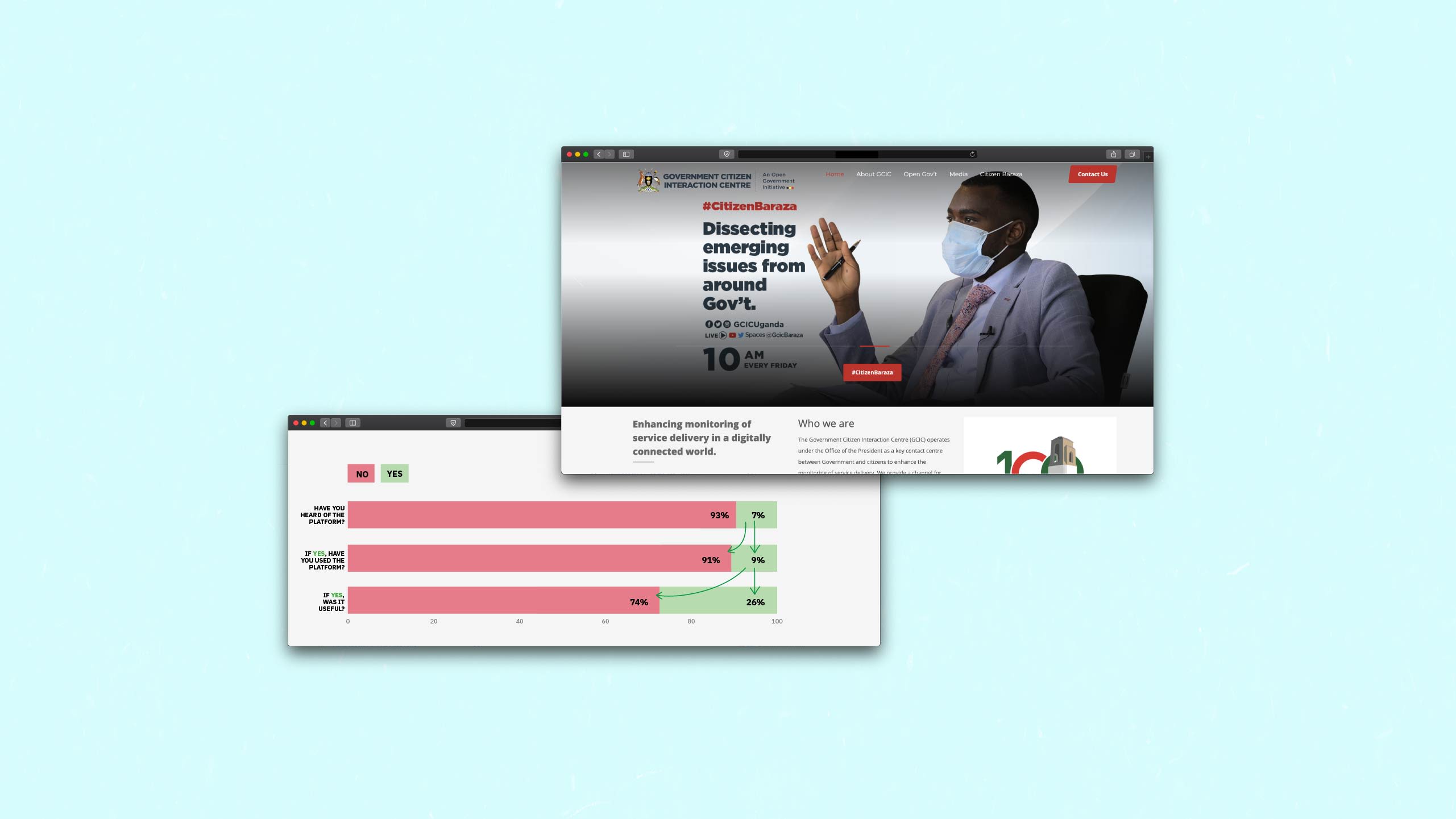

Uganda government procurement portal
Uganda government budget
Ask Your Gov Uganda
Uganda Government Citizen Interaction Centre
Most people aren't aware of these online tools.
Among those who are, most haven’t engaged with them yet because they’re “not interested” or “don’t know much about it”.
But, citizens who had heard of the tools, and had engaged with them, found them very useful.
“For people to be able to hold their governments accountable, they need to know what they are supposed to get and how to access it. It also helps if they have experience in or have heard stories about others successfully accessing a particular offer from the government so they trust the idea and have faith in the process.”
When our leaders encourage citizens to express and share their opinions with them across all media platforms, trust will increase. When trust increases, so will the overall quality of governance.
What next?
Digital media platforms have provided new media platforms and expanded the space for activism, advocacy and engagement.
Open governance, transparency and inclusion all depend on citizens being able to effectively engage government both at local and national levels.
We have identified three ways that we can move towards opening up digital civic space together.
Recognise digital civic spaces as positive spaces for citizens to engage with and support governments
You can help us to get your local representatives to recognise digital civic space as a positive space for citizens to engage with, just like these engagement champions!
If your local representatives are leading the way when it comes to digital civic engagement, why not give them a shoutout online and encourage others to follow suit.
Promote and raise awareness about the websites and tools that citizens find most relevant and useful
Help us promote and raise awareness about the websites and tools most useful for digital civic engagement.
We’ve started a list, but if something’s missing, let us know and we’ll add it!
Protect and promote the safety and security of digital civic spaces
Of course none of this is possible without safe and secure online spaces.
If you’d like to know more, we recommend reading Freedom House’s reports on Tanzania and Uganda and joining the #KeepItOn coalition in their global fight against internet shutdowns.
This story is a collaborative production between Twaweza and Data4Change, as part of Data4Change's Data Stories Programme, which was funded by Small Media and Omidyar Network.
Credits: Senior Data Researcher, Evelina Judeikyte; Data Associate, Morine Amutorine; Graphic Designer, Surasti Puri; Journalist, Frenny Jowi.

